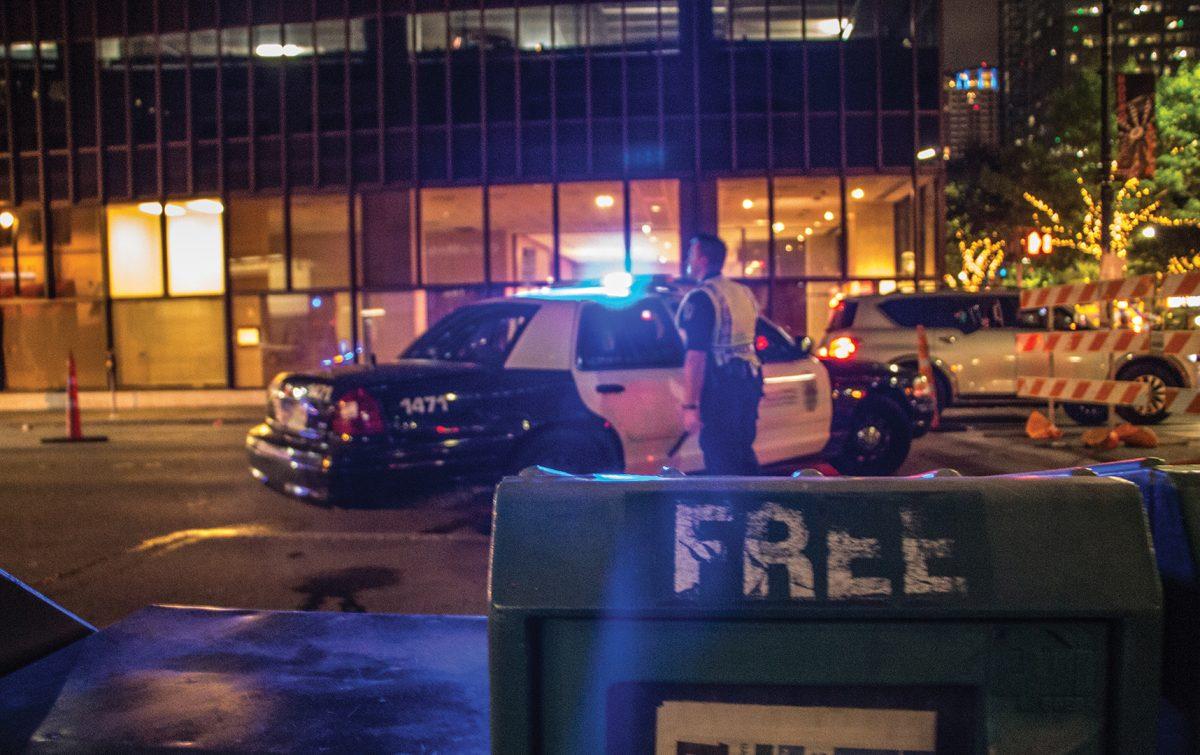A bill introduced for the 85th Texas Legislative Session could require public high schools and driver’s education courses to include instruction on how to interact with law enforcement.
Authored by Democratic Senators Royce West and John Whitmire, Senate Bill 30 is an effort to establish proper protocol for citizens and police officers during traffic stops and other scenarios.
On March 21, the Senate Criminal Justice Committee approved to move the bill to the Senate floor, where it passed unanimously. The House has received Senate Bill 30.
According to the bill, the State Board of Education and the Texas Commission on Law Enforcement would work together to create instruction for in-person encounters between public school students and police officers.
Material required to be covered by the bill includes civilian rights, proper behavior, laws regarding questioning and detention by a police officer, consequences for failing to comply with those laws and how to file a complaint against an officer of the law.
Supporters of the bill acknowledge the need for students to understand how to address police officers outside of a school environment.
“Often students deal with school resource officers (SROs) at the school campus, but the practices and procedures that are acceptable in the school environment are not always acceptable in the community.” said Rudder High School teacher Chris McDade. “Additionally these students will transition into the real world where they will continue to interact with peace officers, so it’s necessary.”
Schools in San Marcos and across nation are also provided with SROs that are regularly on campus assisting students, ensuring safety and building relationships between law enforcement and the community.
San Marcos High School SRO D.J. Castillo said he believes the bill would further the work that he and others currently perform by teaching both students and officers to look at one another differently through education.
“Knowing things is always better than not knowing them,” Castillo said. “So if there’s a class that teaches you how to communicate with someone… that’s a positive thing.”
Although the legislation has received bipartisan support in the Texas Senate, some are concerned enforcing this curriculum in a public school setting may be inappropriate.
“In general, I have mixed emotions about the bill,” said San Marcos Chief of Police Chase Stapp. “On one side of it, I believe it’s important to educate new and old drivers in driver’s ed courses, but teaching this sort of material in schools might not be the best setting.”
Another issue with the bill is legislation of this nature instills the idea that law enforcement isn’t already implementing training programs for officer interaction with civilians.
“Often times, bills like this are introduced to do something already being done,” Stapp said. “To create a bill that says we need to teach cops is almost saying we don’t have a way of doing it currently—which isn’t the case.”
According to Stapp, the SMPD has training modules in place that tackle this issue. The modules are addressed on the first day of an officer’s training and periodic evaluations.
If the bill passes, the State Board of Education and Texas Commission on Law Enforcement will require finalization of a training program before Sept. 1, 2018. This requirement would make the bill active for the first time during the 2018-19 school year.
Police officers will be required to complete training no later than the second anniversary of their licensing date. Officers licensed on or before Jan. 1, 2018, will be required to complete a training program under this legislation by Jan. 1, 2020.
Driver’s ed and safety courses will be required to create instruction for anyone completing the curriculum under the bill.
Public comment will be required before final approval of any training program in any district.
Senate Bill passes for education on police interaction
April 12, 2017
Donate to The University Star
Your donation will support the student journalists of Texas State University. Your contribution will allow us to purchase equipment and cover our annual website hosting costs.



















